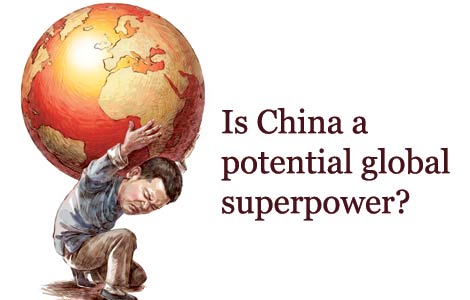Globalization is flowing from the rest to the West so the West will have to adapt
The global communications order is changing and new theories of communication are needed to understand the changing global media landscape. This was a point researchers from all over the world made time and again as they presented academic papers at the annual conference of the International Association for Media and Communication Research in Dublin, Ireland, recently.
Several papers and panels dealt with the rise of the BRICS countries (Brazil, Russia, India, China and South Africa) and the impact of this on global media. The use of media for soft diplomacy by China was one of the topics that attracted the attention of scholars. In a special session, Hu Zhengrong, a professor at the Communication University of China in Beijing reflected on the conference theme of Crises, 'creative destruction' and the global power and communication orders. He asked whether this financial crisis is a Western crisis rather than a global one, given the recent growth of economies outside the Western centers. He nevertheless warned the crisis that originated in the West is also already having an effect on countries such as China, where the stock market recently reached record lows. However, the question is whether China can translate the hard power it still commands in the areas of its economic investments globally, its clout in international trade, its sophisticated technologies and military force to the soft power of global influence over news agendas and global public opinion.
Hu said that China already has a large domestic market for traditional media and a growing market for new media: Almost half the country's population has access to the Internet and 80 percent of those users are accessing the Internet through mobile phones, tablet computers and the like. But there is also an intellectual property trade deficit because the country is importing more media products than it is producing locally. Moreover a lot of Chinese TV production, such as reality television formats, is copied from the international market.

 Questioning China's achievements
Questioning China's achievements
 Celebrating Chinese Valentine's Day
Celebrating Chinese Valentine's Day
 Spanish skyscraper forgets elevator
Spanish skyscraper forgets elevator
 Beijing rainstorm cancels flights, kills airport worker
Beijing rainstorm cancels flights, kills airport worker
 Highs and lows of marine rescue
Highs and lows of marine rescue
 Lin Dan wins Olympic final rematch over injured Lee
Lin Dan wins Olympic final rematch over injured Lee
 Northeast China braces for major floods
Northeast China braces for major floods
 High-heeled, well heeled
High-heeled, well heeled












